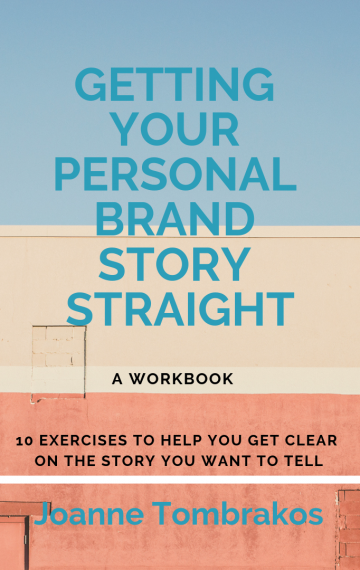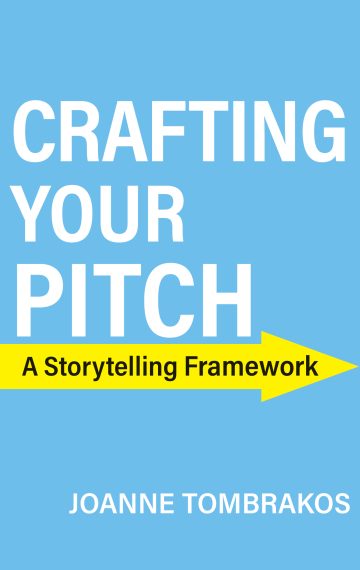
Back in the dark ages, when I graduated from college, in order to get a job one went armed with a resume, a good GPA and a copy of the Help Wanted Ads. If you were lucky you had a connection somewhere that might help to pull your resume out of the pile and if you were smart enough and brave enough you used it.
There was no Internet, no LinkedIn, no personal websites and no Google available to do a quick search to see what skeletons you might already have lined up in your closet. Tom Peters had not yet defined the idea of a personal brand.
Today it’s more complicated. Soon to be college graduates need to be thinking about building their personal brand and how they’re showing up online and offline. If you’re one of them here’s what you need to know. And if you’re not and graduation is long in your rear view mirror these are all good reminders of what you should be paying attention to.
The clock on your personal brand started yesterday
You’ve already been contributing to it with your work or intern experience, your sense of style and humor, the places you’ve lived and traveled to, where you went to school and what people are saying about you after you leave the room.
Your personal brand is not a destination you arrive at
It’s a living, breathing organism and it will evolve as you do. You’ll take right and left turns. You’ll pivot. More than once you might make a complete career shift. That doesn’t change the essence of your personal brand. It just contributes to it and its evolution.
It will require care and feeding
If you want a career and you want success you’re going to have to spend time and pay attention to it. It does not happen by itself.
Commit
Block out time every day to give your personal brand the attention it needs. The amount of time will vary depending on where you are in your career. It can be as little as twenty minutes a day for maintenance and as much as a few hours when you’re in job search mode. Don’t wait until you need a job to think about your brand.
Your Digital You is home base for your personal brand
When people want to find out more about you they’re going to search online and see what they find. Recruiters will search your social network activity. Don’t make the mistake of thinking this is just about LinkedIn. It’s not. LinkedIn is by far the most important social network when it comes to business, but don’t limit yourself to one network. Personal websites are the future. Plus they allow you more creativity through which to present yourself than LinkedIn does.
It’s up to you to tell your story the way you want it told.
You don’t need to leave this up to Google. You have control over that story. One of the hardest parts of personal branding is getting your story straight. (and why I created this workbook to help you do that.) Especially at those moments in your career when you pivot. And you will pivot.
Share stuff online that’s worth sharing
Part of the telling your story is in what you share, whether you’re creating content in the form of a blog, vlog, snapchat or podcast or curating it. What you share says something about your personal brand.
Be yourself – but do it with skill and thought
In other words, think before you share. It’s perfectly acceptable to share personal stuff. In fact, in today’s world, we want to know the human side of you. But think before you post a picture of yourself in compromising situations. Once it’s online it’s never going away. The best you can hope for is something unsavory eventually makes it way so far down in a Google search no one sees it. Just keep in mind, search happens within social networks now too.
Your network is your net worth. Online and Offline
Never underestimate the power of networking. If you do nothing else to build your brand, NETWORK! Go to conferences, networking events. Stay in touch with your classmates and professors online and offline. If you’re not sure how to or are uncomfortable with the process read my friend Kelly Hoey’s book, Build Your Own Dream Network.
Your resume alone will never get you a job.
You need one. It needs to be accurate and easy to read. But gone are the days when you worried about the quality of the paper stock on which it was printed to make an impression. You’re most likely going to be uploading that resume to an online portal that will then rearrange how the data is inputed. If you want your resume read you need to help it along. That might mean searching LinkedIn for a mutual connection who works there or being creative with ways to interact with prospective employers online.
Do your homework
Just because it’s not being assigned anymore, keep doing your homework. Before interviews. When you’re trying to make connections. When you’re meeting with potential clients. Your knowledge will make you stand out, contribute to your personal brand and help you to land the job.
Go old school
Back in those dark ages I grew up in, my mother ingrained in me what are now considered old school methods that are still the hallmarks of my own personal brand. Simple things like being on time, sending thank-you notes, being helpful, always looking your best and smiling. News flash: They have not gone out of style and now more than ever will help you stand out from the noise.
Don’t forget to hustle
With all the talk of inbound marketing and build it and they will come philosophies, never underestimate the importance of including hustling in that equation. You can have a stellar online profile but it’s not enough if no one knows it’s there.
You still have to sell you
People hate that word. But it’s a reality of life in the real world. Your Digital You may be all bright and shiny. Your in-person you may be the same. But just having all the right credentials is not enough. You still have to show how you’re the answer to someone else’s problem. That’s the part called selling.
This post was updated and refreshed on May 4, 2019



Leave a Reply